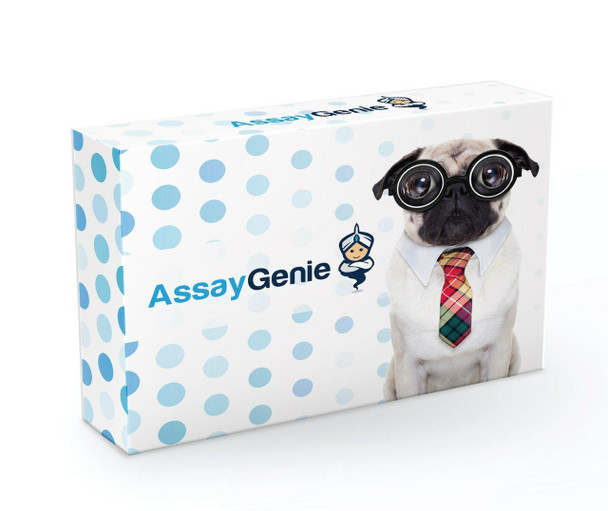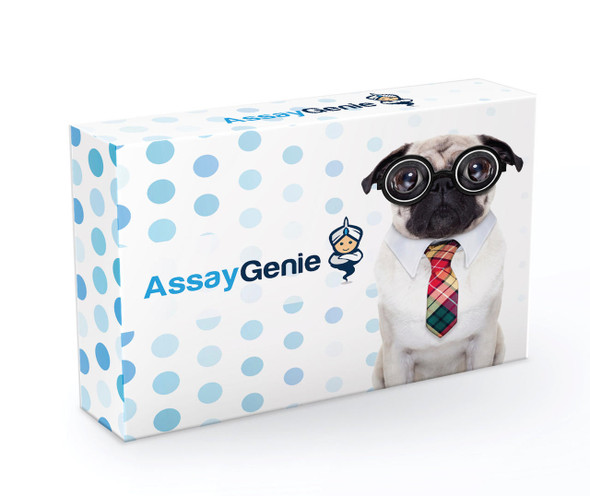AKR1C1 Monoclonal Antibody [PAT6D10AT] (CPAB0106)
- SKU:
- CPAB0106
- Product Type:
- Antibody
- Antibody Type:
- Monoclonal Antibody
- Reactivity:
- Human
- Host Species:
- Mouse
- Isotype:
- IgG1
- Clone:
- PAT6D10AT
- Applications:
- WB
- ELISA
Description
AKR1C1 Monoclonal Antibody [PAT6D10AT] (CPAB0106)
The AKR1C1 Polyclonal Antibody (CPAB0106) is a valuable tool for researchers studying AKR1C1, an enzyme involved in steroid metabolism and detoxification processes. This antibody, raised in rabbits, is highly specific to human samples and has been validated for use in Western blot applications.AKR1C1, also known as 20-alpha-hydroxysteroid dehydrogenase, plays a crucial role in the metabolism of steroid hormones and prostaglandins, making it a potential target for drug development in hormone-related diseases and cancer.
This antibody binds specifically to AKR1C1 protein, allowing for accurate detection and analysis in various cell types, making it ideal for studies in biochemistry and pharmacology.Understanding the function and regulation of AKR1C1 is essential for advancing research in hormone-dependent disorders, cancer biology, and drug development. This antibody provides a reliable tool for investigating the role of AKR1C1 in disease pathology and identifying potential therapeutic targets.
| Product Name: | AKR1C1 Antibody |
| Product Sku: | CPAB0106 |
| Size: | 5μg |
| Host Species: | Mouse |
| Immunogen: | Anti-human AKR1C1 mAb, is derived from hybridization of mouse FO myeloma cells with spleen cells from BALB/c mice immunized with recombinant human AKR1C1 amino acids 1-323 purified from Ecoli. |
| Clone: | PAT6D10AT. |
| Reactivity: | Human |
| Applications: | Western Blot, ELISA |
| Purification Method: | AKR1C1 antibody was purified from mouse ascitic fluids by protein-G affinity chromatography. |
| Isotype: | IgG1 |
| Background: | AKR1C1 transfers progesterone to its inactive state or in other words catalyzes the reaction of 20-alpha-hydroxy progesterone (20-alpha-OHP). In the liver and intestine. AKR1C1 transfers bile and monitors the intrahepatic bile acid concentration though it has a low bile-binding ability. AKR1C1 participates in myelin formation. AKR1C1 is part of the aldo/keto reductase superfamily, which has over 40 known enzymes which catalyze the conversion of aldehydes and ketones to their corresponding alcohols by utilizing NADH and/or NADPH as cofactors thus display overlapping but distinct substrate specificity. |
| Synonyms: | DDH1, DDH, HAKRC, 20-alpha-HSD, DD1/DD2, HBAB, C9, DD1, H-37, MBAB, MGC8954, 2-ALPHA-HSD, AKR1C1, Aldo-keto reductase family 1 member C1, 20-alpha-hydroxysteroid dehydrogenase, Trans-1,2-dihydrobenzene-1,2-diol dehydrogenase, Indanol dehydrogenase, Dihydrodiol dehydrogenase 1/2, Chlordecone reductase homolog HAKRC, High-affinity hepatic bile acid-binding protein. |
| Storage Buffer: | For periods up to 1 month store at 4°C, for longer periods of time, store at -20°C. Prevent freeze thaw cycles. |





